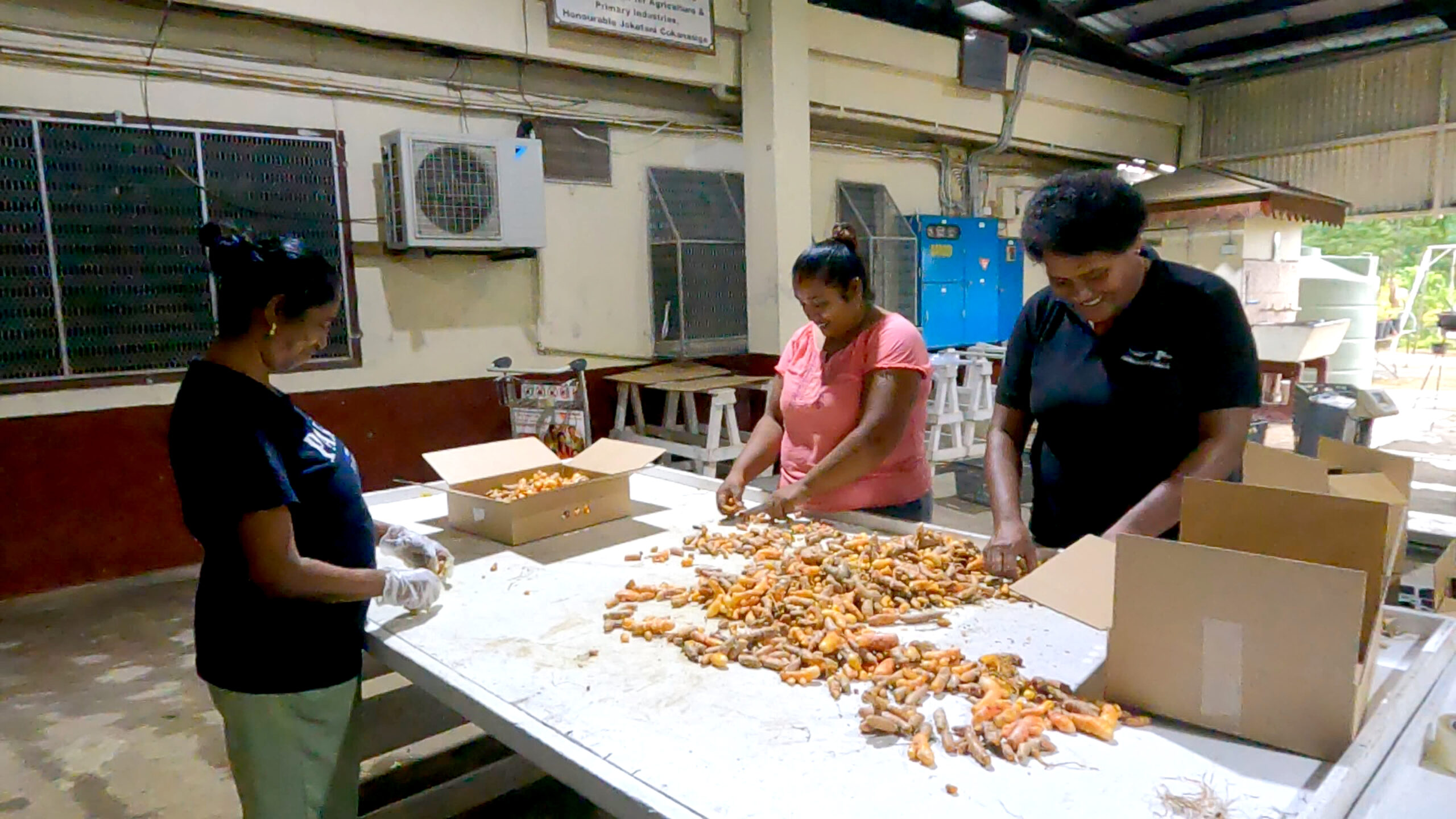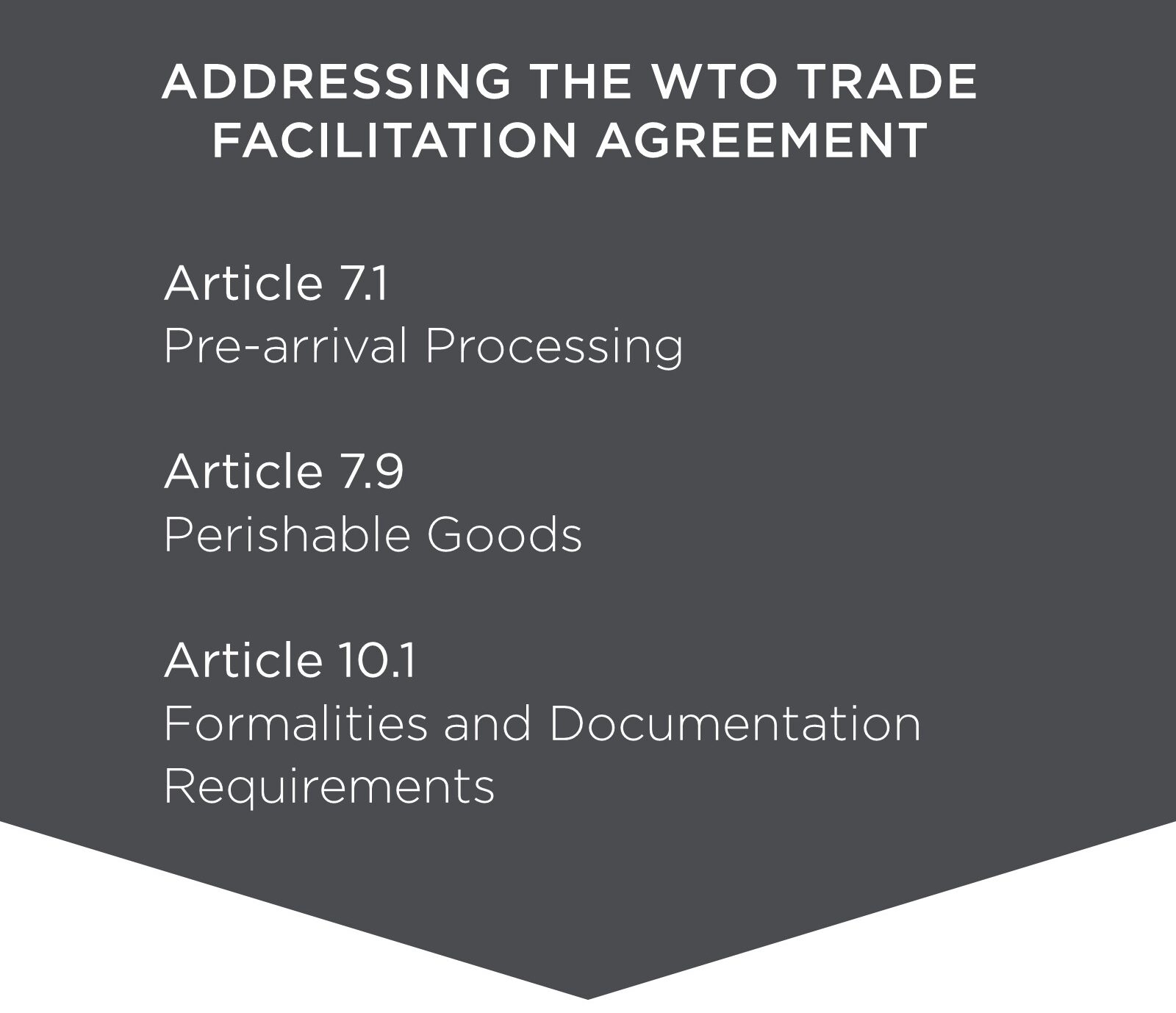 In Fiji, a small-island state dependent on efficient trade flows by sea and air, agriculture represents the main source of income for a large percentage of the population. Goods such as kava, taro, ginger, papaya, pineapples, eggplant, okra and breadfruit are exported around the world, including to Australia, New Zealand, the United States, Canada, China, several European Union bloc states, and neighbouring Pacific Island countries.
In Fiji, a small-island state dependent on efficient trade flows by sea and air, agriculture represents the main source of income for a large percentage of the population. Goods such as kava, taro, ginger, papaya, pineapples, eggplant, okra and breadfruit are exported around the world, including to Australia, New Zealand, the United States, Canada, China, several European Union bloc states, and neighbouring Pacific Island countries.
A phytosanitary certificate is a legal document issued by a country’s National Plant Protection Organisation (NPPO) for exports of plants and goods of plant origin, certifying that they are free of specific pests and diseases. In Fiji, the Biosecurity Authority of Fiji (BAF) holds the mandate to ensure phytosanitary safety of agricultural products.
In 2020, BAF started to digitalise its phytosanitary process with the implementation of the IPPC ePhyto Solution through the Generic ePhyto National System (GeNS) but gaps remained.
In a move designed to boost its economy and enhance the island’s food security, the government of Fiji reached out to the Alliance to work with BAF and the private sector in finalising the transition to GeNS.
What we did
 From April 2022 to May 2023, the Alliance supported BAF in reviewing and revising its procedures to implement GeNS, including:
From April 2022 to May 2023, the Alliance supported BAF in reviewing and revising its procedures to implement GeNS, including:
- Connecting enterprises and BAF remote offices to the system and providing appropriate training in its use
- Revising and implementing new procedures for non-registered exporters in handling ePhytos
- Providing particular assistance in exchanging ePhytos with the United States of America, one of the country’s main trading partners
- Developing and delivering a range of training and change management activities, both for BAF officers and private sector operators.
Family-owned exporter talks up the benefits
Mahens Export, a family-owned business, air freights fresh vegetables and fruits to Auckland, New Zealand. In general, the produce has a limited shelf life of only five days.
Since the introduction of ePhyto certification, the company no longer has to send a car and driver to a nearby town to request a paper document. The time and cost benefits have been immediate: Mahens says the transition has enabled it to boost productivity and increase overall employment. The system saves the company from having to travel, request, and complete around 100 paper certificates a year to cover its two shipments a week to New Zealand.
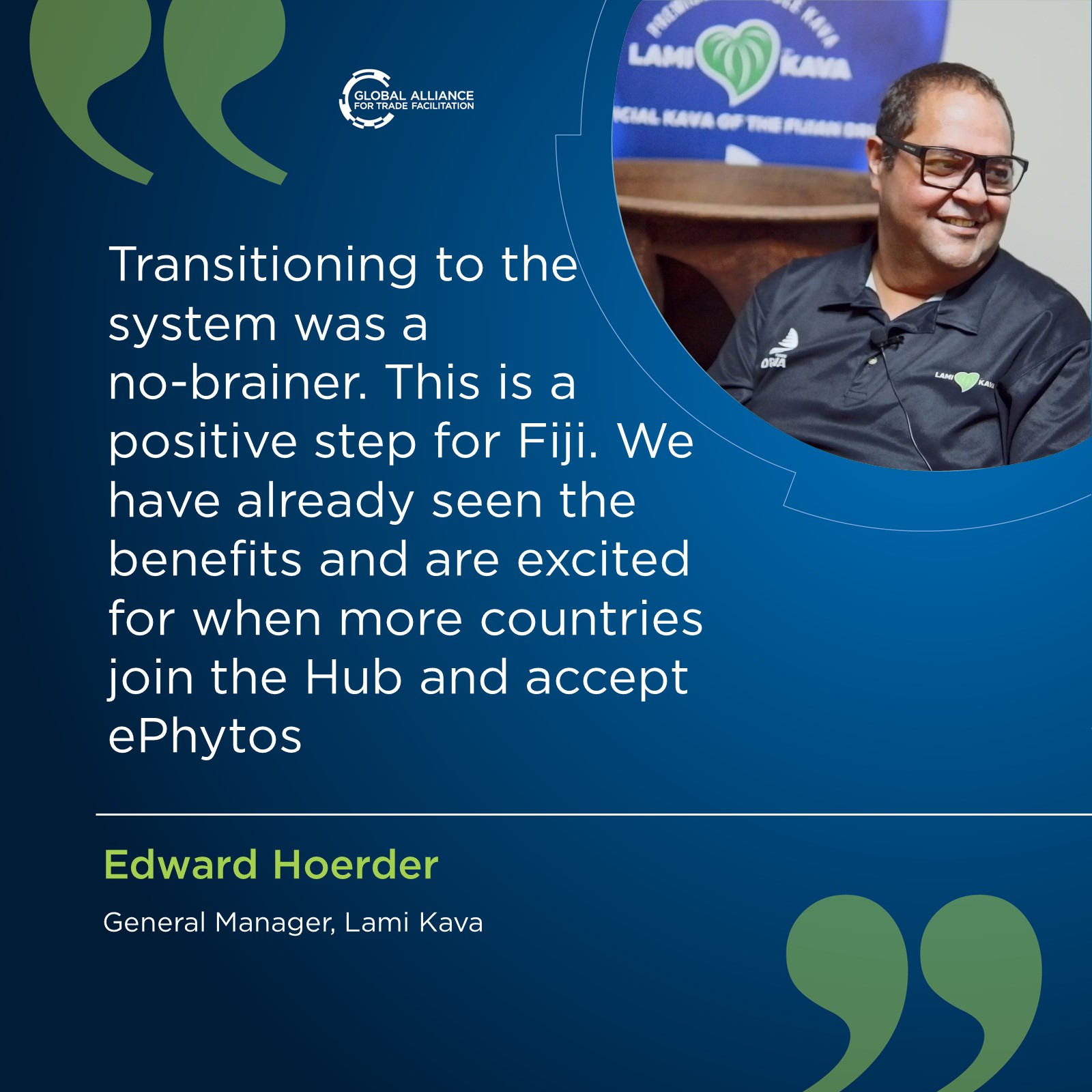 GeNS pioneer details ‘no-brainer’ transition
GeNS pioneer details ‘no-brainer’ transition
Lami Kava was the first company to register with GeNS in Fiji and began using the new solution immediately, freeing up three employees who had previously been tied up in the process of obtaining the necessary paperwork. This represented a massive saving for a company with only 30 employees.
The small firm exports dried kava to Australia, New Zealand, the United States of America and the Pacific Island countries.
Lami Kava’s general manager, Edward Hoerder, says that as well as time and cost savings, he has also noted increased customer satisfaction from quicker turnaround times.
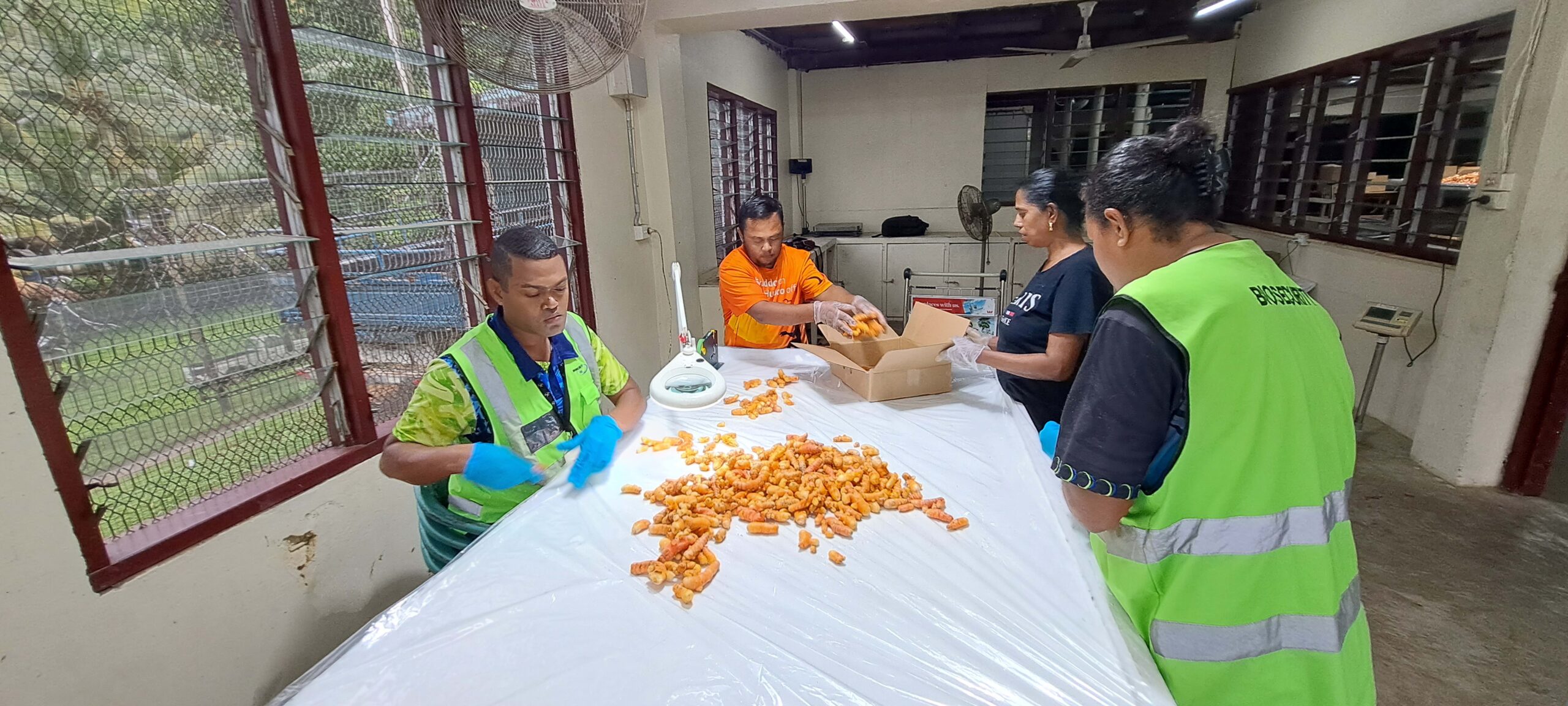
The Impacts
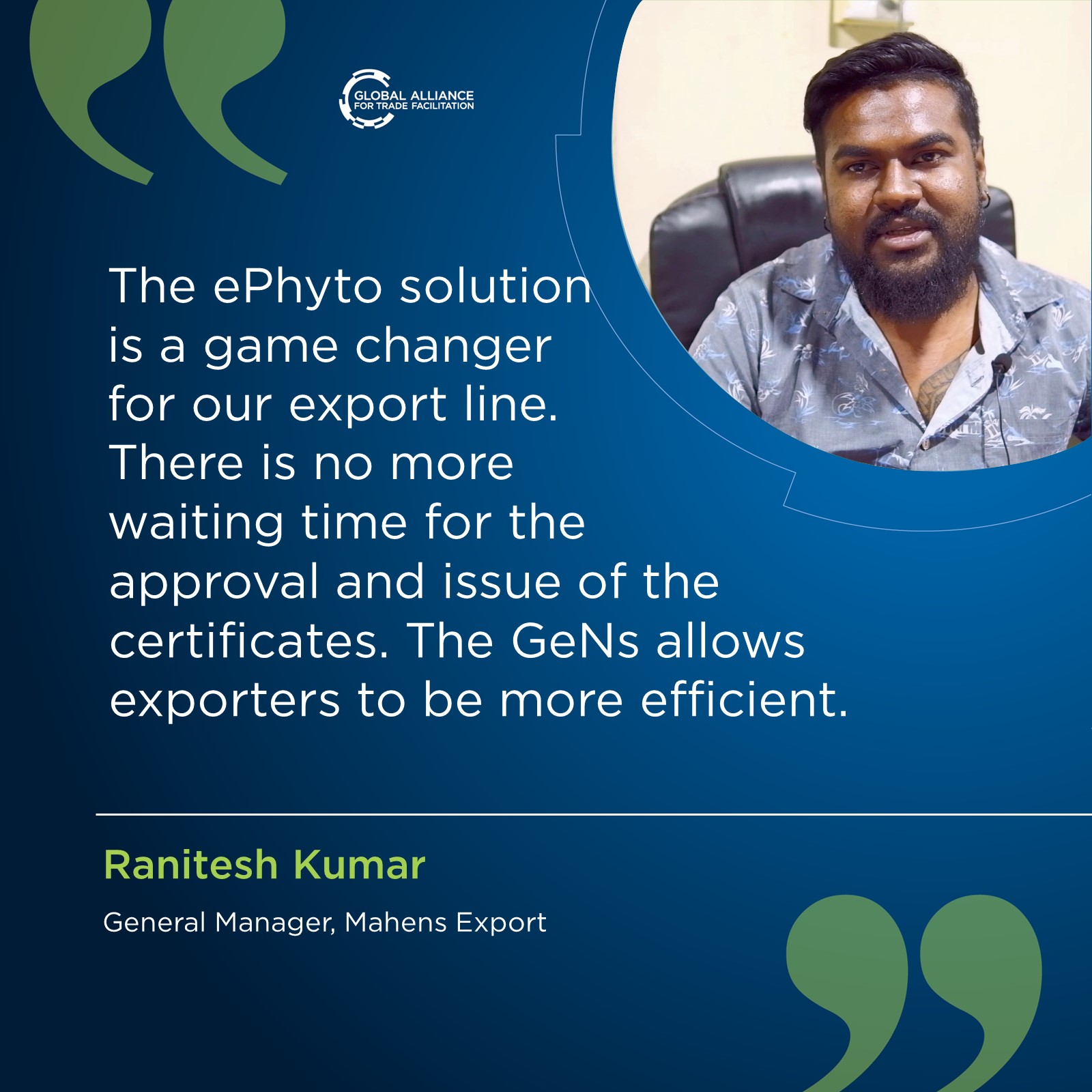 The project successfully concluded in March 2023, with 65 companies newly-connected to the system. Adopting the IPPC ePhyto Solution has enabled traders to exchange electronic certificates with key trading partners via a central exchange, and the impact will grow exponentially once Australia and New Zealand begin using the IPPC Hub.
The project successfully concluded in March 2023, with 65 companies newly-connected to the system. Adopting the IPPC ePhyto Solution has enabled traders to exchange electronic certificates with key trading partners via a central exchange, and the impact will grow exponentially once Australia and New Zealand begin using the IPPC Hub.
The transition to ePhyto is projected to cut phytosanitary processing time for Fijian traders by 56% and save them $US 6 per certificate. Beyond those quantitative benefits, electronic phytosanitary certificates:
- allow quick, accurate, low-cost exchange
- alleviate administrative burden on border agencies and traders
- improve data quality (for example, GeNS allows traders to align with reporting requirements)
- enhance competitiveness by introducing a seamless, transparent system that generates greater confidence in quality and origin
- help in levelling the playing field for micro, small and medium enterprises (MSMEs) by supporting their integration into global supply chains
- provide greater transparency, making it easier to communicate with international buyers, which in turn makes it more attractive for importers to do business with Fijian exporters
- increase food security through quicker border clearance, lessening spoilage and waste
Manasa Export says it has saved more than three hours of driving time in pre-shipment processing. It no longer has to apply, complete and collect paper certificates at a BAF station and it also benefits from receiving alerts by email and online certificate tracking. Using GeNS has also improved the turnaround times for orders, improving relationships with international buyers.
The traders using GeNS say that the biggest boost may be yet to come, courtesy of the increased trust the new system has forged between the private sector and BAF officials. Previously, mistakes in paperwork would involve the company in several interactions with the local BAF station, which often escalated to BAF headquarters in the capital, Suva. Electronic certification means this is no longer an issue.
- 100% of stakeholders surveyed agree that public private cooperation increased
- 79% of stakeholders reported increased trust in their public or private sector counterpart
- 100% of stakeholders surveyed agree the project made trade processes and requirements more transparent
